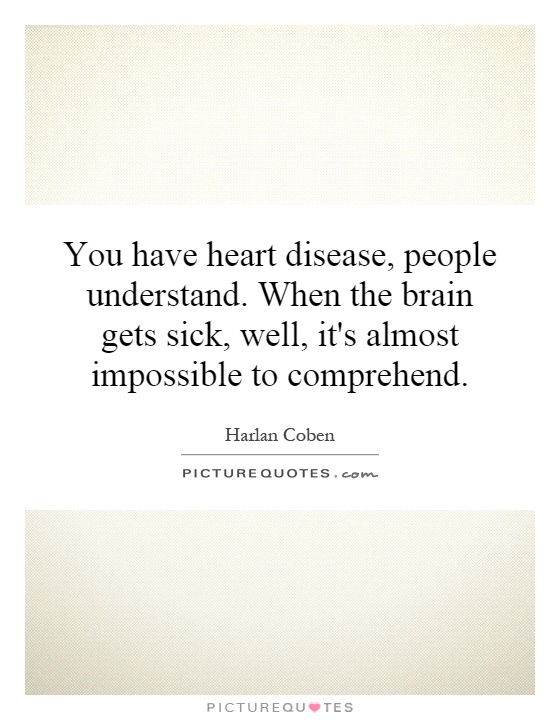You have heart disease, people understand. When the brain gets sick, well, it's almost impossible to comprehend

You have heart disease, people understand. When the brain gets sick, well, it's almost impossible to comprehend
Harlan Coben, a master of suspense and mystery, often delves into the complexities of the human mind in his novels. In his works, he explores the dark corners of the psyche, delving into the depths of human emotion and behavior. One of the recurring themes in his writing is the idea that mental illness is often misunderstood and stigmatized in society.In his novel "The Stranger," Coben tackles the issue of mental illness head-on, portraying a character who struggles with a debilitating brain disorder. The protagonist, Adam Price, is forced to confront the reality of his wife's illness and the impact it has on their family. As he grapples with the challenges of caring for a loved one with a mental illness, he begins to realize the true extent of the stigma and misunderstanding surrounding brain disorders.
Coben's exploration of mental illness in "The Stranger" highlights the stark contrast between how society views physical ailments, such as heart disease, and how it views disorders of the brain. While people may sympathize with someone suffering from a physical illness, they often struggle to comprehend the complexities of mental illness. The invisible nature of brain disorders makes them difficult to understand and even harder to empathize with.
Through his characters and their struggles, Coben challenges readers to confront their own biases and preconceptions about mental illness. He forces them to question why society is so quick to judge and dismiss those who suffer from brain disorders, while offering compassion and understanding to those with physical ailments.












 Friendship Quotes
Friendship Quotes Love Quotes
Love Quotes Life Quotes
Life Quotes Funny Quotes
Funny Quotes Motivational Quotes
Motivational Quotes Inspirational Quotes
Inspirational Quotes